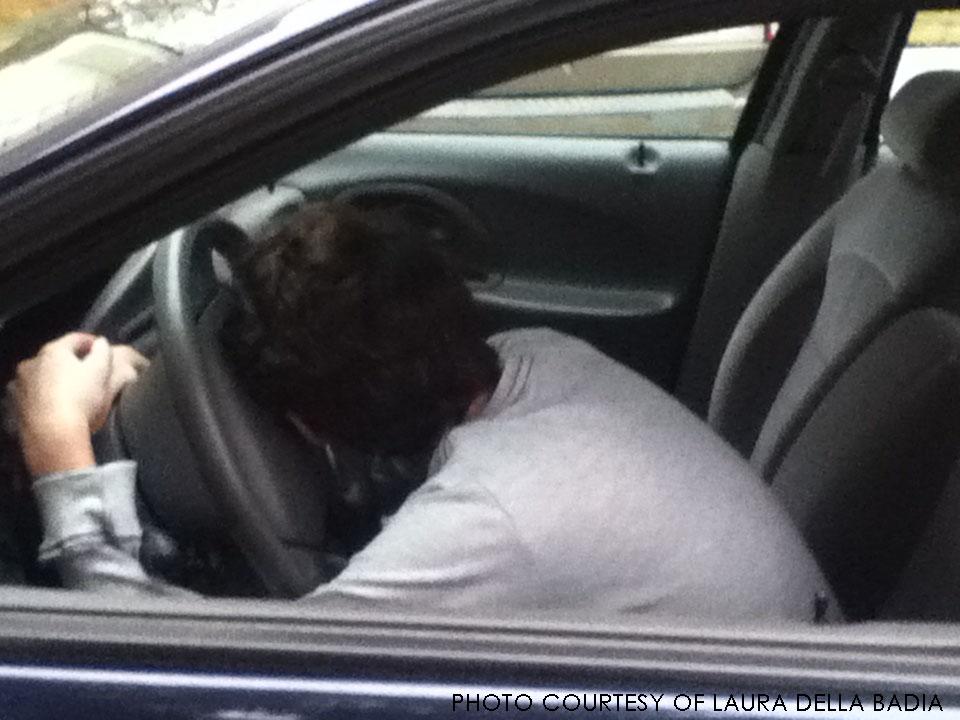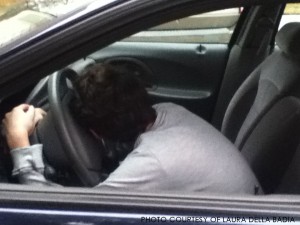

The driver who initiated the incident had not been intoxicated with alcohol and drugs or even distracted by unruly passengers. Instead, the driver lacked hours of sleep and had not even realized he/she was tired in the first place. The missing hours of sleep only add up.
According to Dr. Della Badia, sleep/neurology/epilepsy physician, the mind needs sleep for several reasons. “Sleep serves as a restorative function to the mind and body. You can think of it as clearing toxins out of the body that build up during wakefulness,” said Della Badia, my father. “These toxins contribute to the sensation of sleepiness.”
As the days go on, one feels the effects of these “toxins” in action. In general, the ability to memorize, concentrate and focus reduces. “You can forget about multi-tasking,” said Della Badia. While in specific to driving, the mind slows down, delaying performance reaction time. Vision blurs, making it harder to see the obstacles ahead. The head spins, making it harder to concentrate. Some drivers even fall asleep at the wheel.
Feeling Great, a Durham sleep clinic, created a brochure highlighting these facts. More than 100,000 accidents a year are caused by drivers deprived of sleep. These accidents resulted in 40,000 injured people and 1,500 deaths. It was reported in 2007 that over 50 percent of teenage drivers drove without attaining the proper amount of sleep. 70-75 percent of drivers involved in these types of crashes are young men.
According to the National Sleep Foundation, the average high school student sleeps only 6.9 hours per night, adding up to 13 hours of missed sleep per week. Every creature needs sleep to function properly. The brain rests in order to think clearly the next day. The skin needs sleep to repair itself. The eyes rest after watching the world go by all day, muscles grow and repair and calcium is added to bones. The heart also slows down after pumping blood through the body.
Sleep is a necessary part of life. When the body is younger, it needs more sleep. Children in school need 10 to 11 hours of sleep every night. It then lessens to nine hours of sleep for teenagers, and eight for adults. However, average teenagers and adults attain less sleep than the recommended amount.
Teenagers stay awake all day and through the night because of school and activities. Then, there is the rush to arrive to school on time without receiving detention from sleeping in those extra five minutes. The same situation, only slightly altered, applies for adults as well. Sometimes it seems impossible to retain any sleep at all.
“Every individual needs to try the best to adjust their schedule. This is a complex issue. Some adults have to work two jobs and lose sleep. Student activities and homework can get overwhelming at times,” said Della Badia. “With the need to avoid cramming and very late nights, start working on projects as soon as you find out and slowly put it together, rather than having to stay up most of the night to get it done, which leads to acute sleep deprivation. Chronic partial sleep deprivation can be almost as damaging. Best advice–Avoid procrastination. Put the books and electronics away and get the proper amount of sleep.”
When feeling tired while driving, there are several different techniques to use. One could pull over at a safe location and take a nap, allow someone else to drive, consume a caffeine product fifteen minutes before driving, open the windows or blast music. While these may help, it is not enough. The mind itself is still sleeping. There are severals ways to help improve regular sleep cycles overall.
“Set a regular bedtime and wake time. No TV, reading or electronics in bed. Sleep in a dark room. Add a sound machine to reduce hearing outside noises. Don’t eat meals late at night. Avoid drinking a lot of liquids in the evening so that you don’t have to wake up in the middle of the night to go the bathroom,” listed Della Badia. “For adults, no tobacco or alcohol at least 2 hours before bed and none during the night. If you wake up in the middle of the night and can’t go back to sleep, avoid bright lights, no TV/computer. Read a very boring book in a dim light in another room and when sleepy return to bed.”
Even though, driving is a must for some people with busy schedules, there are ways that help reduce sleepiness and car accidents due to that. The best way to do that can be to simply “sleep, sleep, sleep,” as Della Badia put it.